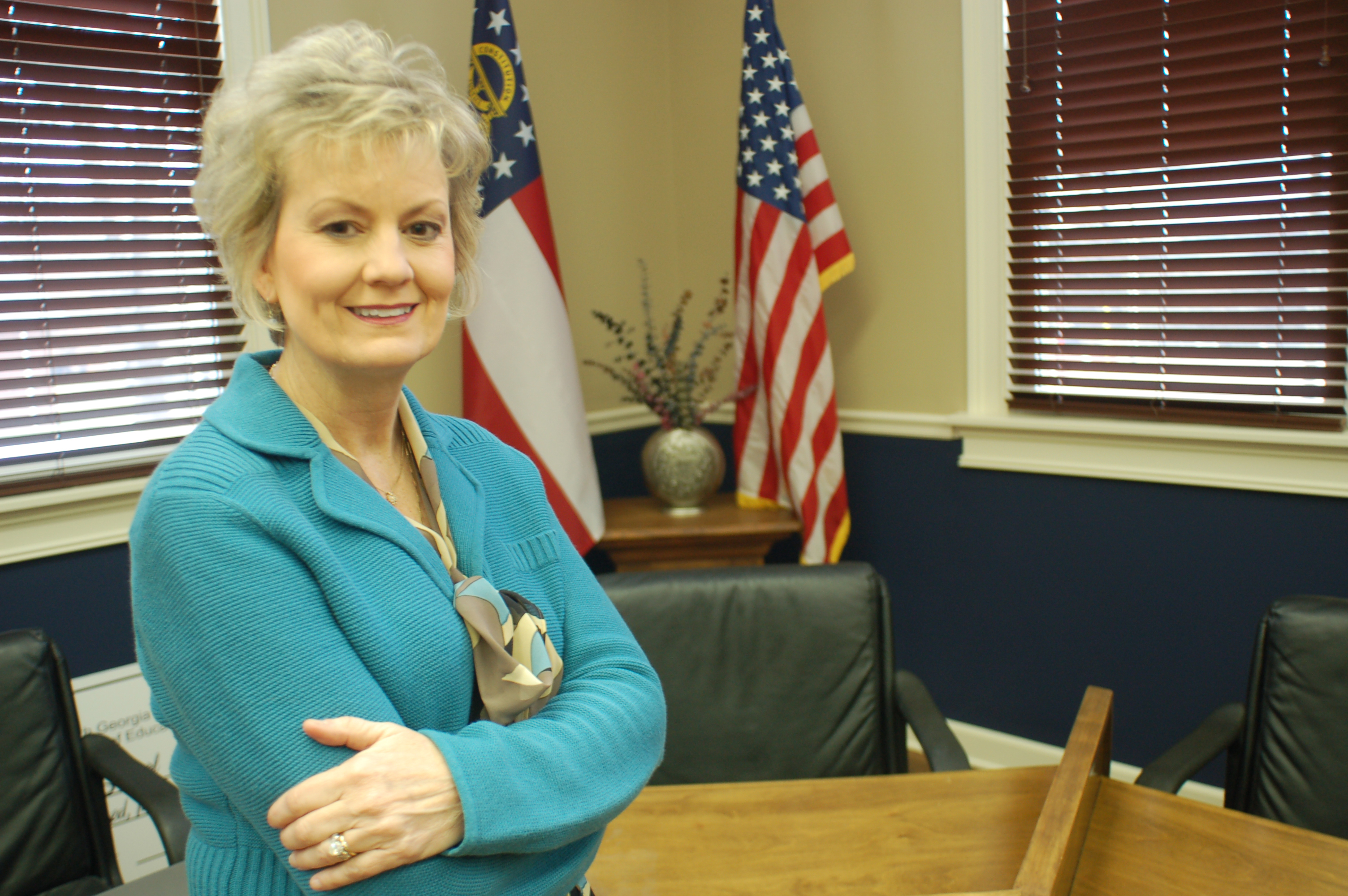In the ongoing battle to stretch limited resources, some Georgia school districts are finding savings in the least likely of places: at the top.
While still uncommon, officials say several school districts now are employing part-time superintendents. By hiring back retired schools chiefs, districts are realizing big savings on salary and benefits. Yet superintendents receive a higher total compensation by drawing full pension payments on top of their half-time paychecks from districts.
Some see that as sending the wrong message, while others question the overall cost to taxpayers.
With certain retirement benefits set to sunset, Chickamauga City Schools Superintendent Melody Day abruptly announced her retirement in late August. After only about a month off the job, the system received a state waiver and rehired Day. Her previous salary of about $124,000 is now costing the school system less than half that. With even more savings on benefits -- her state retirement now covers health insurance -- officials estimate the district is saving about $80,000 a year after the move.
"It's a win-win for everybody," school board member Billy Ellis said.
Day has been the system's superintendent for more than a decade and has worked in the Chickamauga district since 1978. That experience, she said, and Chickamauga's small size -- the district has about 1,400 students -- allow her to handle the role of superintendent on less than a full-time schedule.
So-called retirement "double dipping" has for decades been common practice for teachers and other public employees, who retire from one job, begin collecting retirement pay and enter into another position. But the practice now is becoming increasingly popular among school superintendents, who are retiring from their posts and directly re-entering their previous jobs on part-time status.
State rules require districts to employ full-time superintendents. But with slashed education funding, the state school board has handed out waivers, allowing small districts to hire back retired superintendents. Since 2003, Georgia school districts have missed out on more than $5 billion in funding because of austerity cuts from the General Assembly.
PRACTICE QUESTIONED
Though officials say most of Georgia's part-time superintendents still work close to full-time hours, some worry their official status could de-emphasize the importance of the role.
"I don't know that you want to send the message that it's a part-time job," said Herbert Garrett, executive director of the Georgia School Superintendents Association.
Garrett said this kind of arrangement is happening only in smaller districts where funding is the tightest. And with limited resources, he said, the state board has waived other education regulations in its efforts to provide more financial flexibility to districts.
While Day and the other six part-time superintendents across Georgia are breaking no rules or laws, some say the practice ultimately hurts the taxpayer, who is shelling out more under such an arrangement.
"To pretend that this is something done for the public sounds deceptive to me," said Joy Pullman, research fellow at the free market-minded Heartland Institute and managing editor of School Reform News.
She said the practice points to problems in the setup of the state pension fund. And while it may be common practice for public employees, Pullman noted that those in the private workforce don't often get to retire and go back to work.
"You think of pensions as being for retirement," she said. "And if you haven't really retired, then you shouldn't be getting retirement benefits."

